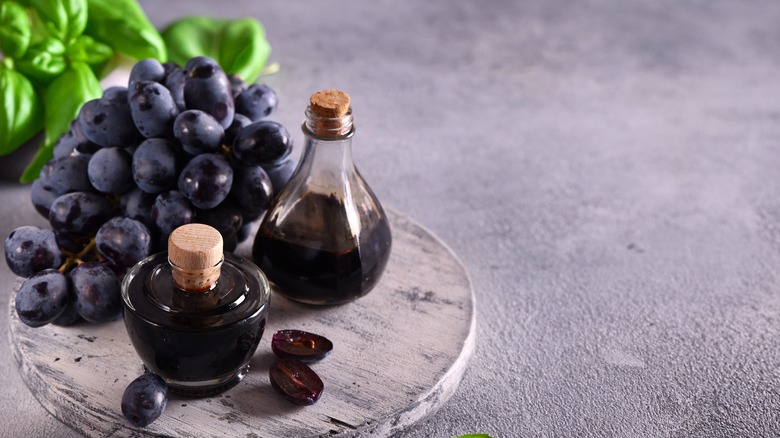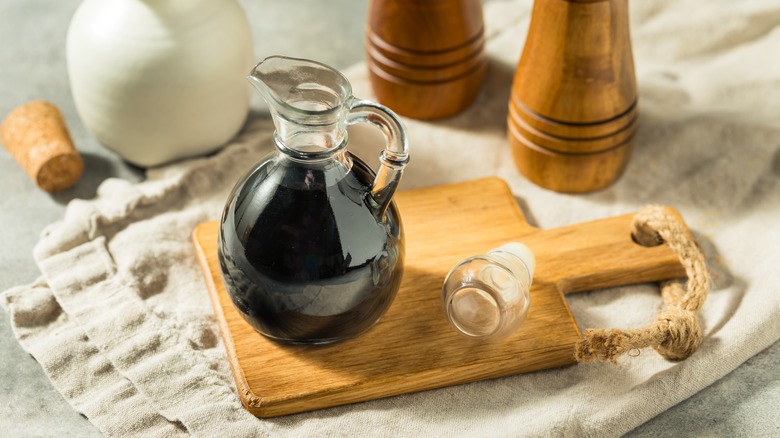Why Balsamic Vinegar Is An Easy Swap For Worcestershire Sauce
Too often, we get deep into recreating a recipe and realize we forgot to pick up a key ingredient from the grocery store. Though it may not be the main component, its absence is enough to throw off the dish. A splash of Worcestershire sauce can pull flavors together, but if you don't have any on hand, there's an alternate.
The expert blend of white vinegar, tamarind, anchovies, garlic, and molasses makes Worcestershire sauce a common ingredient for plenty of recipes. It adds an umami touch to food while being tangy, sweet, and a little spicy. Used in everything from meat marinades to cocktails, it's easy to finish up a bottle of the condiment in no time. Thankfully, balsamic vinegar, another common pantry staple, is one of the absolute best Worcestershire sauce substitutes. Made of concentrated, freshly-pressed grape juice that's undergone fermentation and acidification, balsamic vinegar is tart and rich.
The fruity, syrupy notes of the vinegar are reminiscent of molasses, which gives Worcestershire sauce its sweet, heady taste. The depth and acidity of both ingredients make them worthy swaps for one another. Use a 1:1 ratio when making the swap. You can also make a balsamic reduction for a concentrated taste that mirrors Worcestershire sauce's intensity, or add a dash of tamarind paste for the same earthy, thick quality.
When should you use balsamic vinegar in place of Worcestershire sauce?
Though balsamic vinegar makes a worthy replacement for Worcestershire sauce, we wouldn't recommend it in recipes where the latter condiment is a dominant taste. Instead, opt for balsamic vinegar when you only need a hint of tang and depth. Something strong-tasting like beef Irish stew benefits from the acidity of Worcestershire sauce but is just as delicious with a tablespoon of vinegar. Made with chunks of beef and the meaty broth, a slightly sweeter touch from balsamic vinegar won't change much.
In dishes like a decadent French onion burger, though, be mindful of how pairing balsamic vinegar with other sweet ingredients can make things taste a little too saccharine. The caramelized onions have an intensely sweet flavor that a dash of Worcestershire sauce can counteract. Although the condiment does contain molasses, the anchovies help to balance it thanks to its potent umami effect. You can always slightly increase the amount of salt or herbs in a recipe to even out the sweetness. The savory component is what really sets the two apart, so feel free to add a dash of something with MSG when using balsamic vinegar.

